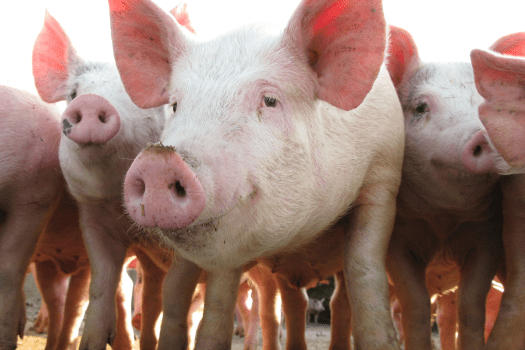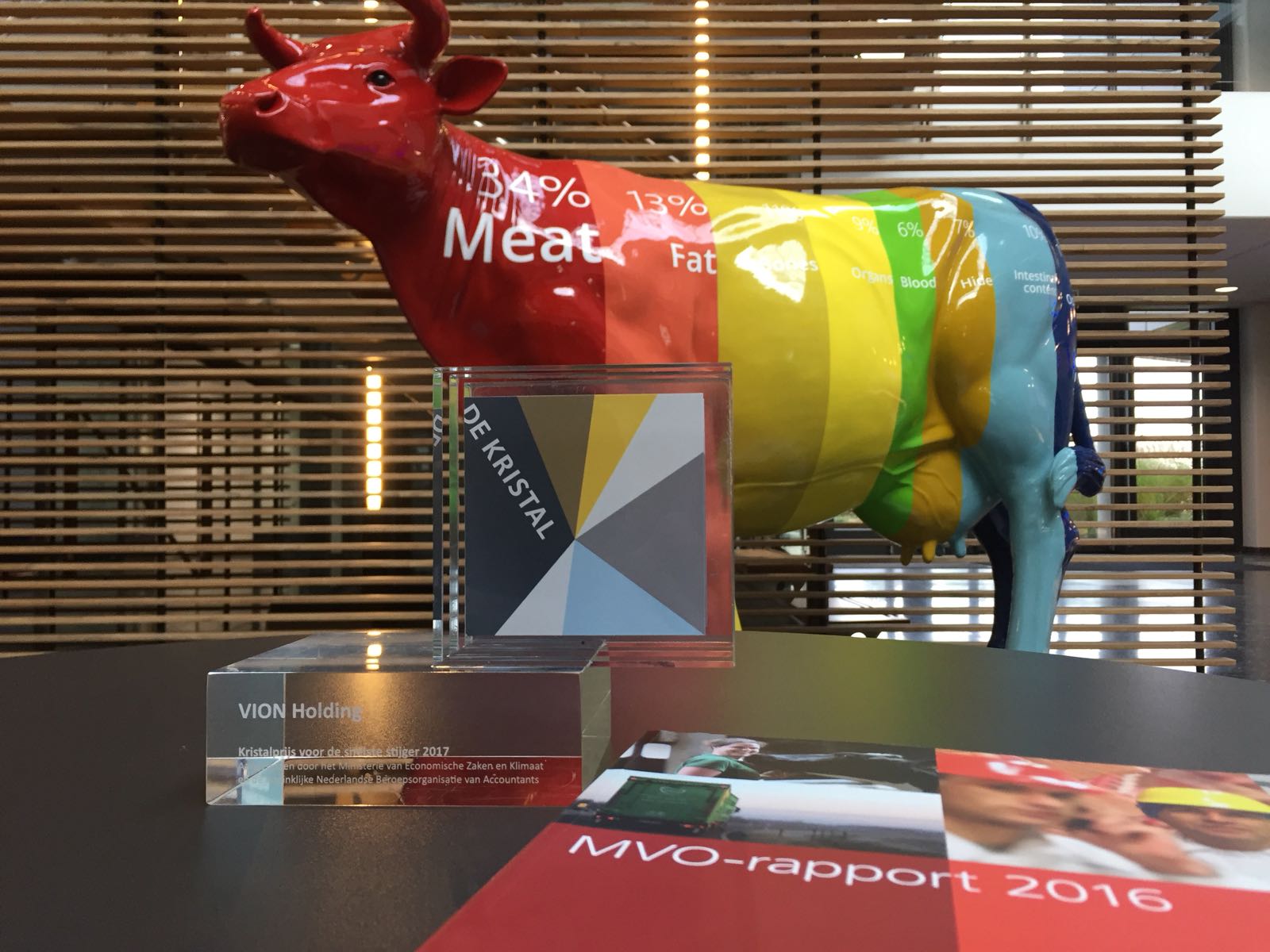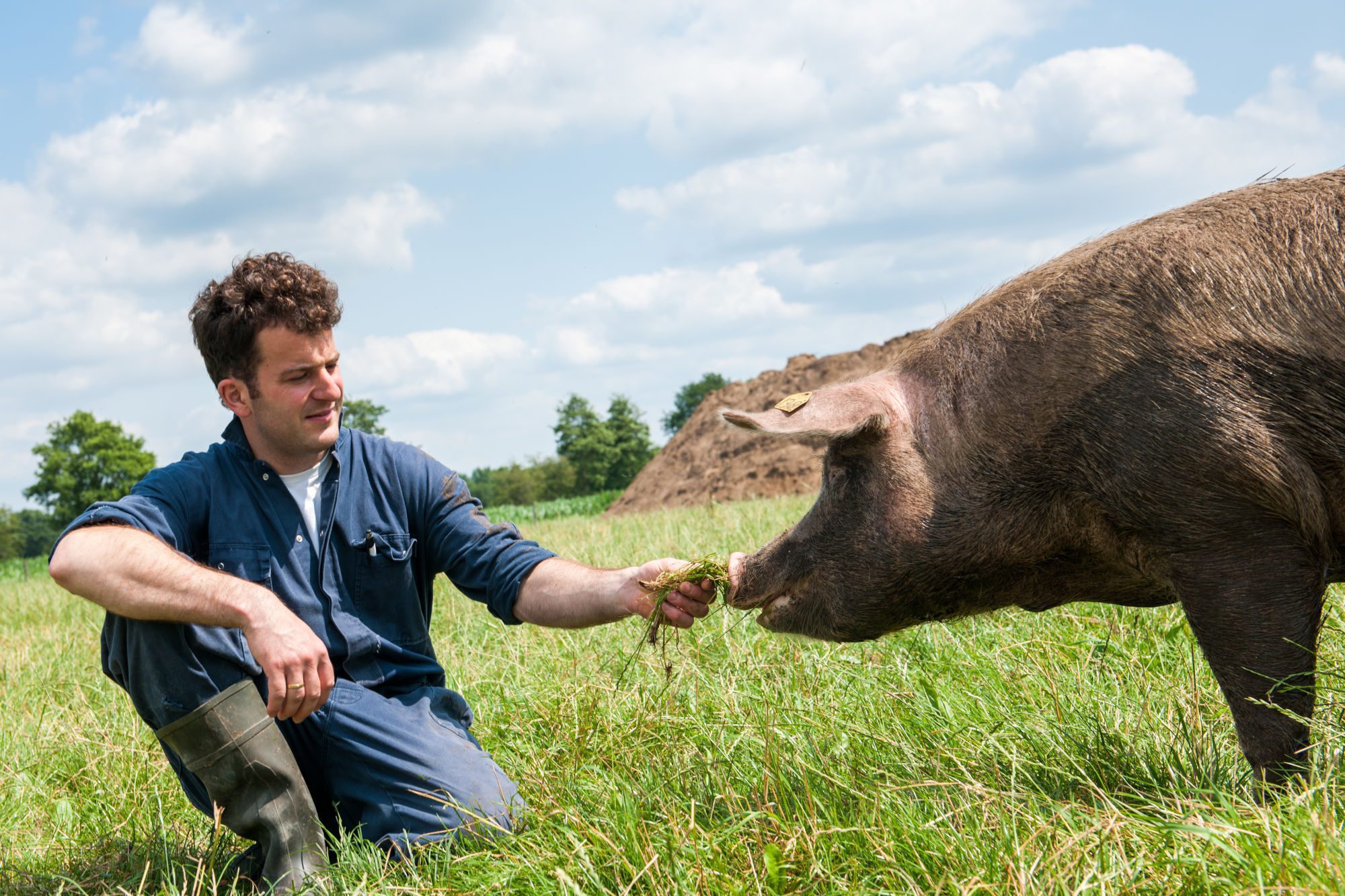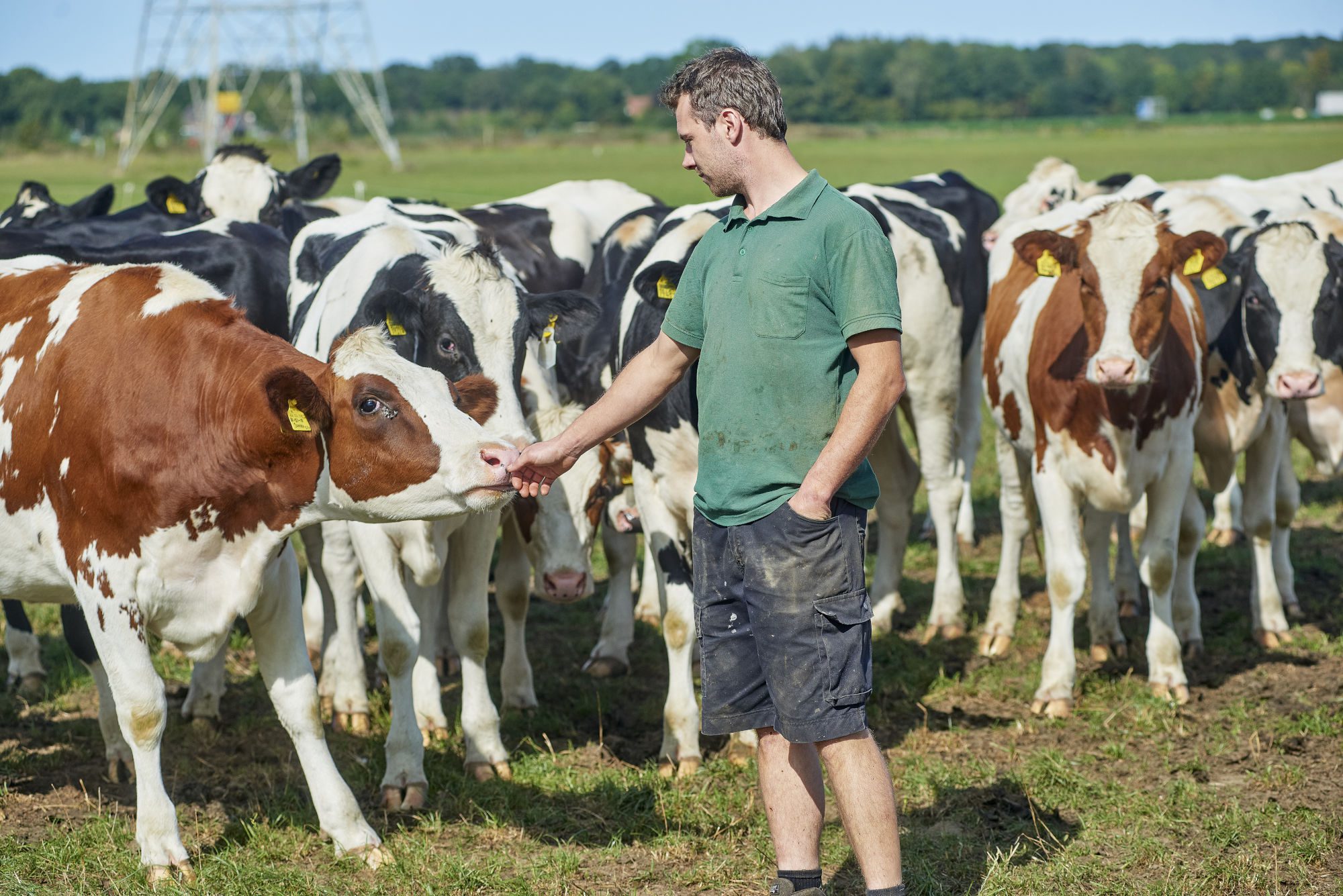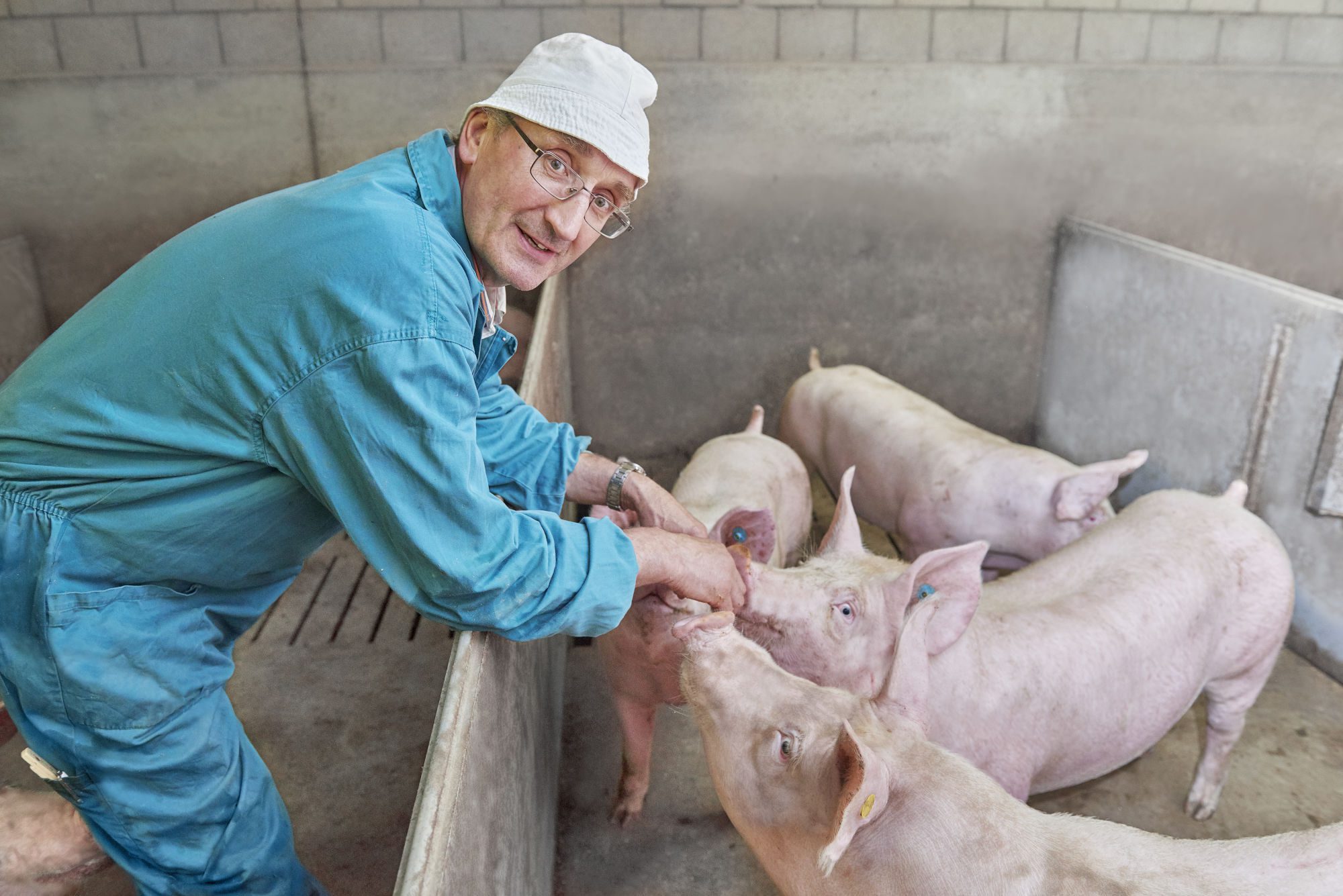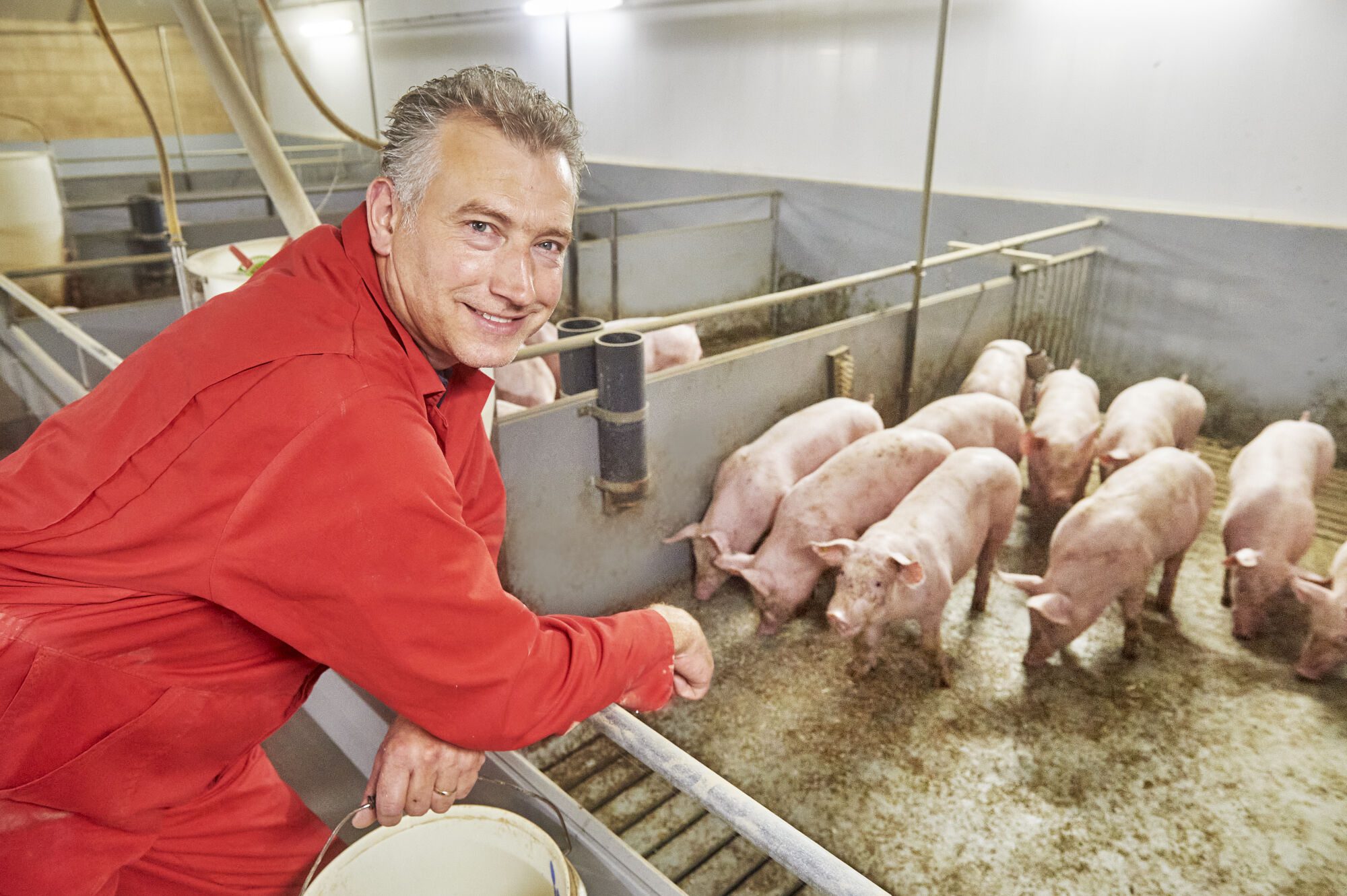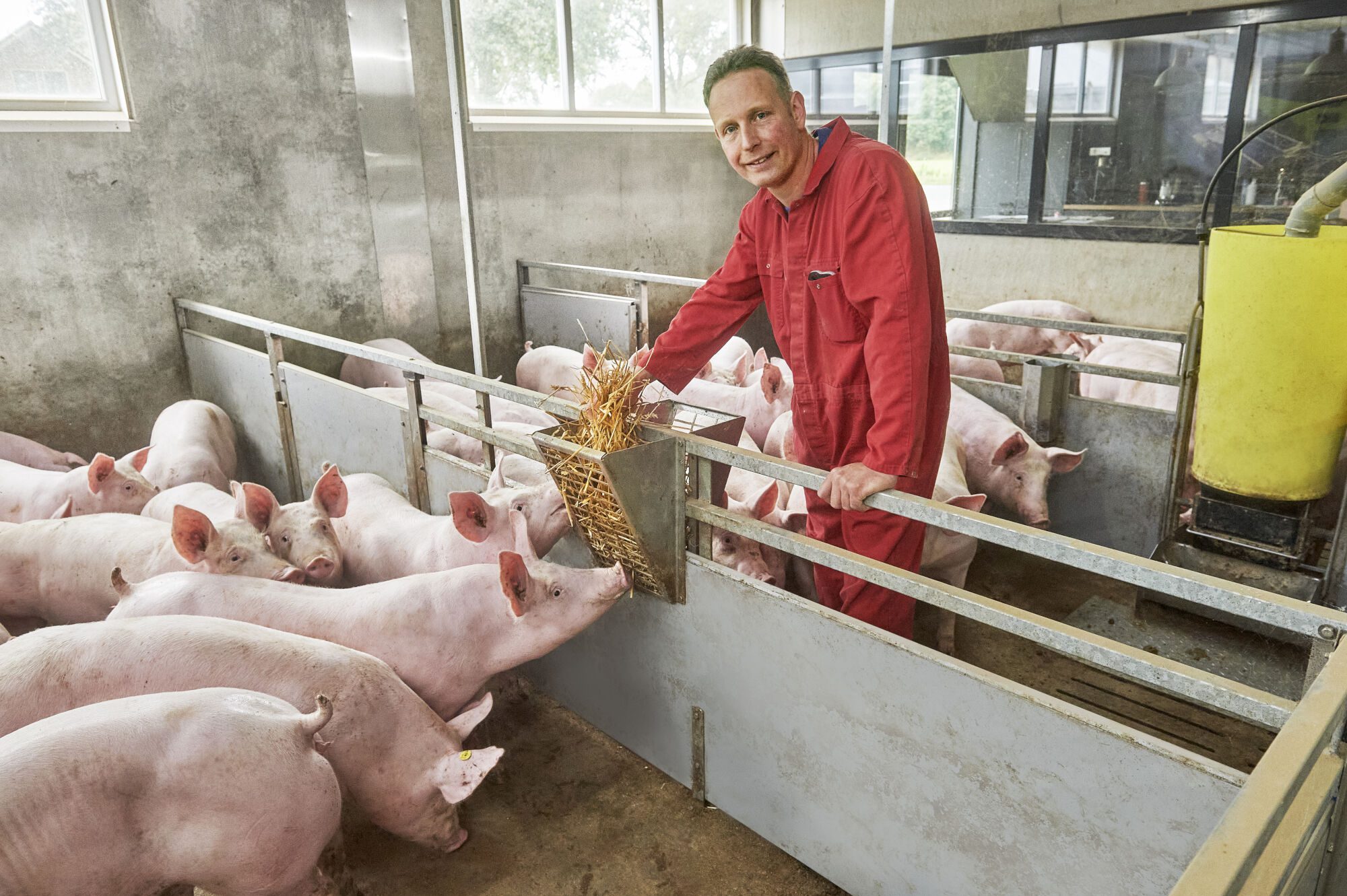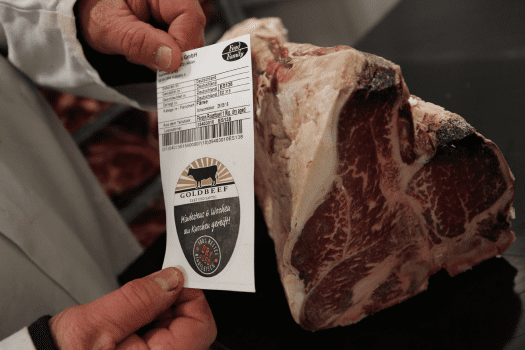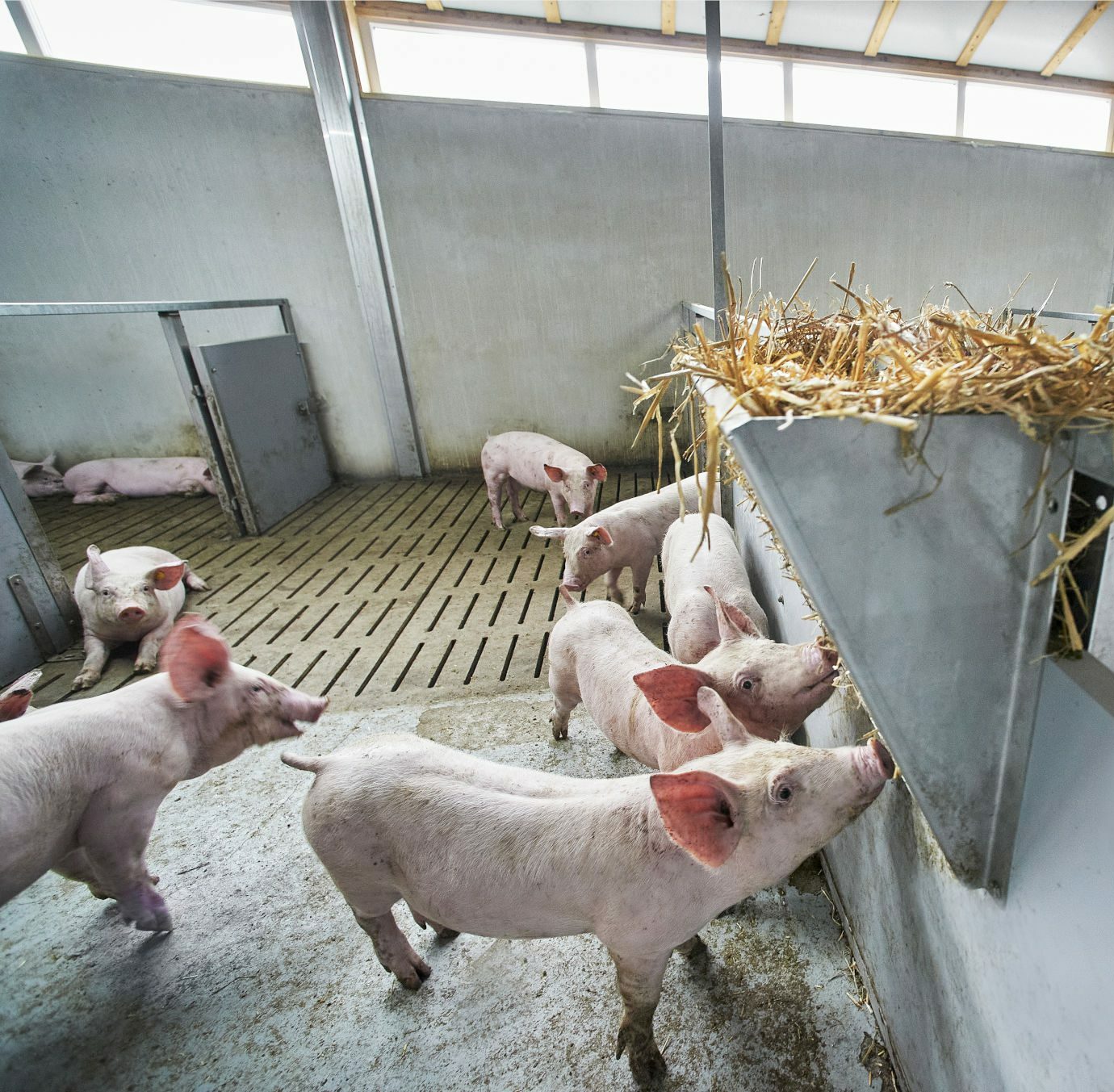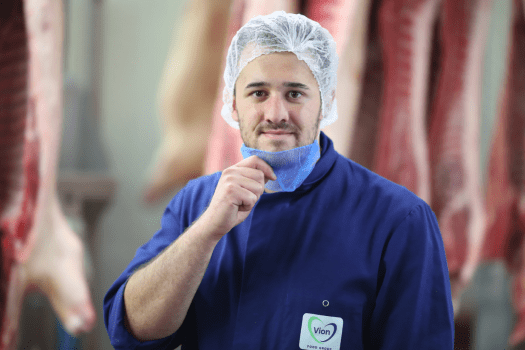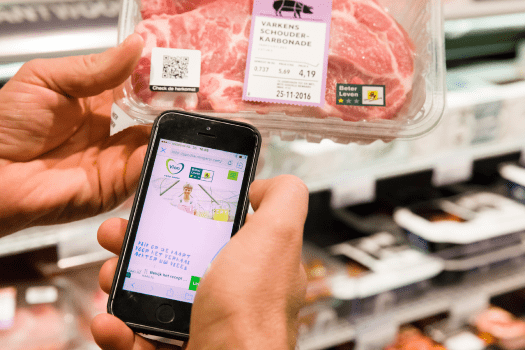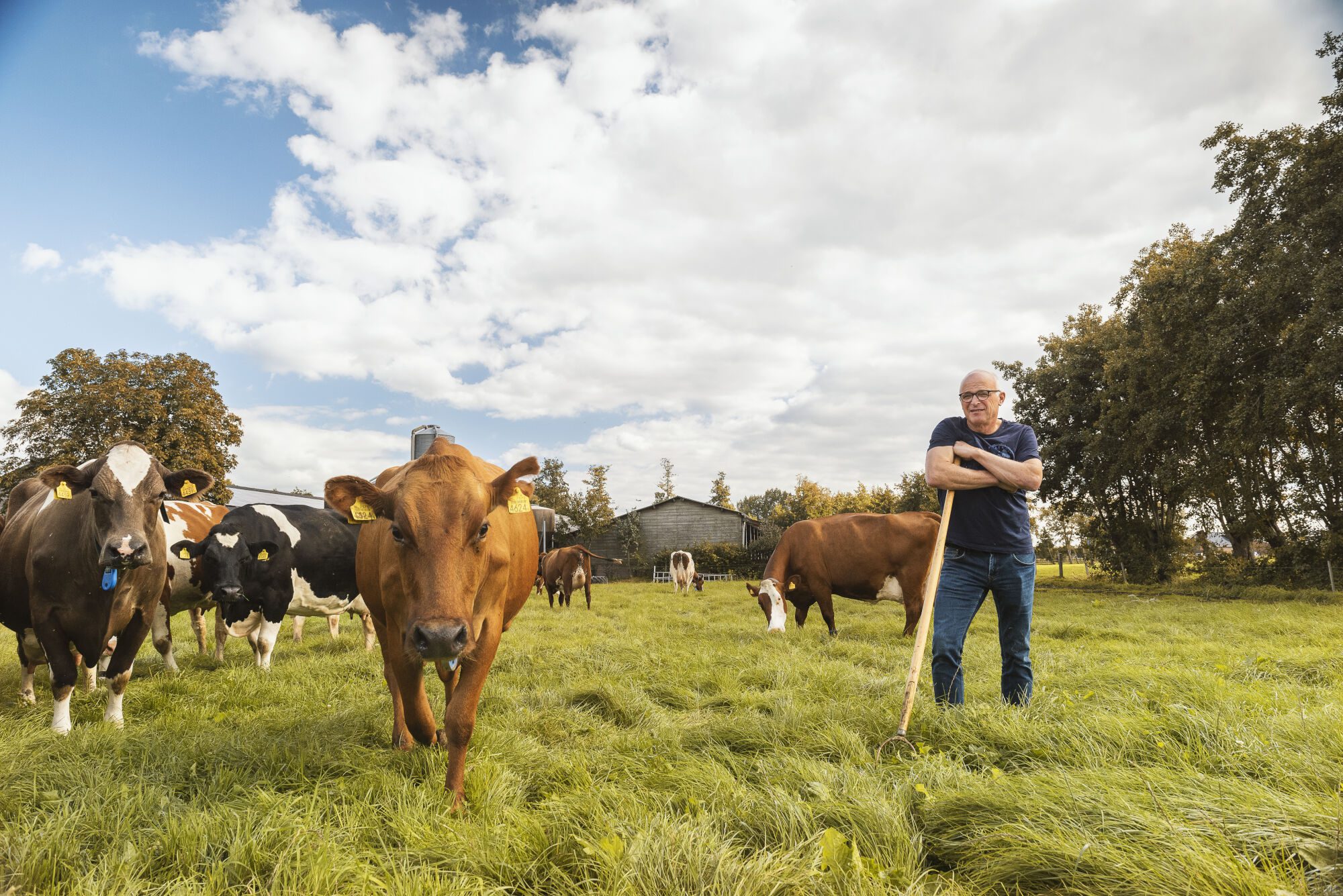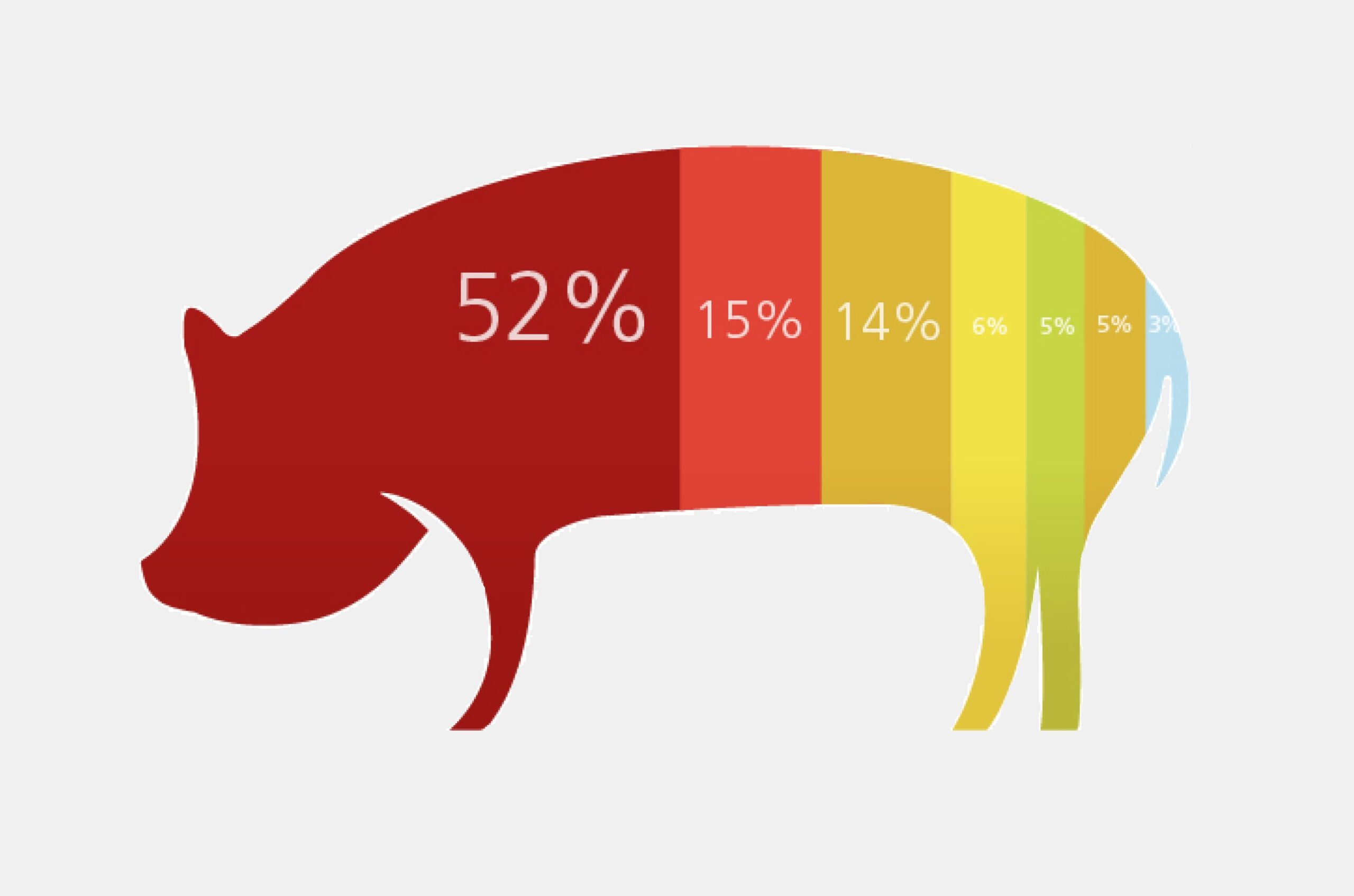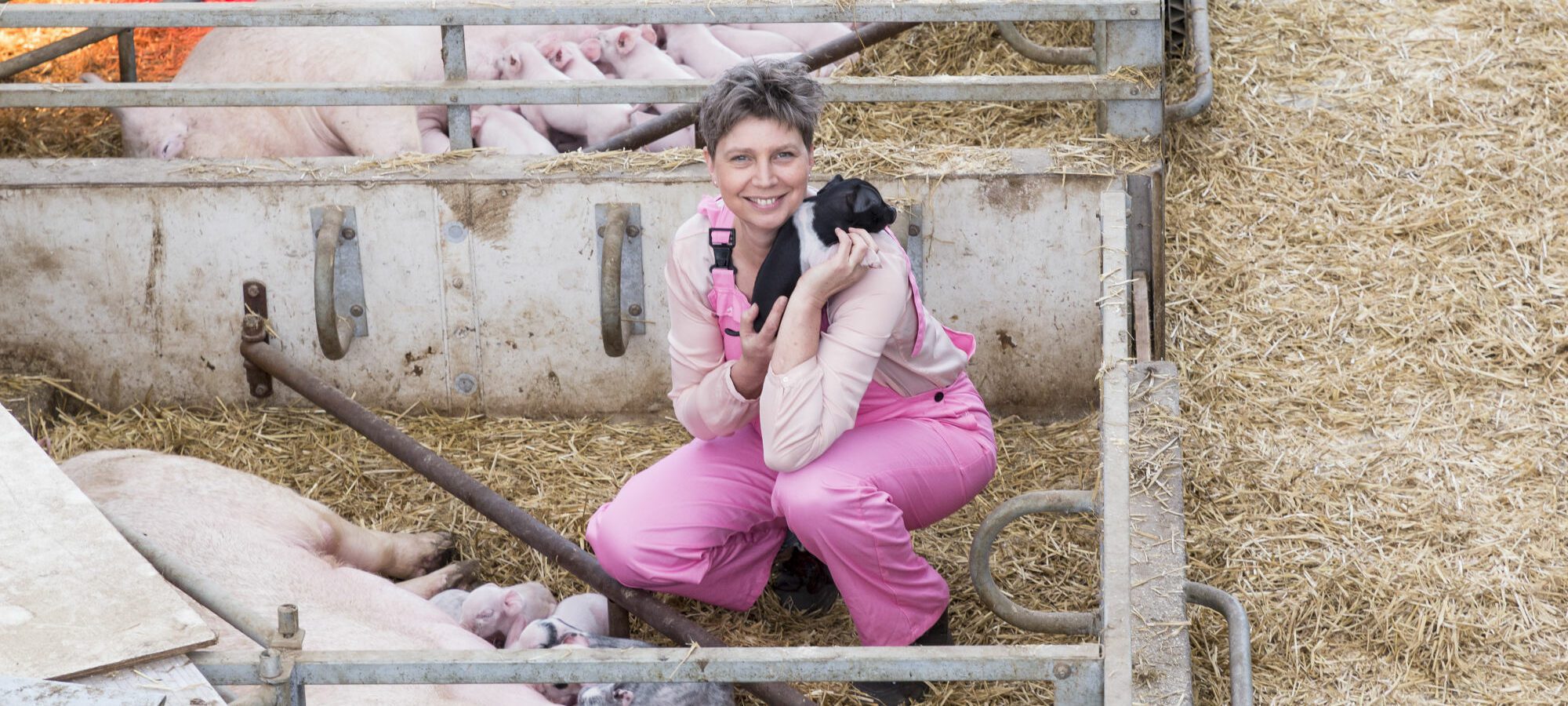
Our responsibility
Vion's strategy for a sustainable future
News & stories
CSR Targets
In executing our strategy of Building Balance Chains, we consider the economic, social and environmental impacts of our decisions. In this way, we create more value, both for our supply chain and for society at large, and we fulfil our purpose of providing Food that Matters. On all our material topics, we set targets which we want to continuously improve on in the coming years.
- Better performance
- Lower performance
- Stable performance
Social Topics
Food safety
KPI: % compliance to Vion’s internal - beyond legal – microbiological standards for product hygiene
Result 2021 Trend versus 2020
Target for 2022
Animal welfare
KPI: % of the animals for which no restunning was needed. All of the animals (100%) was stunned before slaughtering
Result 2021 Trend versus 2020
Target for 2022
Employment and working conditions
KPI: % absentee rate Vion total
Result 2021 Trend versus 2020
Target for 2022
Traceability and product integrity
KPI: % of the sales volume originated from plants certified according to a specific product integrity standard
Result 2021 Trend versus 2020
Target for 2022
Environmental Topics
Sustainable farming
KPI: Number of farms on which the GHG emissions are assessed
Result 2021 Trend versus 2020
Target for 2022
Carbon footprint of processing
KPI: Scope 1 + 2 CO2e emmissions per tonne sold
Result 2021 Trend versus 2020
Target for 2021
Water usage of processing
KPI: Water intensity of municipal water (m3 municipal water used / tonne sold)
Result 2021 Trend versus 2020
Target for 2022
Economic Topics
Fair pricing
KPI: % of the delivered pigs from farmers participating in Good Farming Balance
Result 2021 Trend versus 2020
Target for 2022
Our strategic priorities within the CSR topics
Of the eight material topics for which we strive to minimise negative impact or optimise positive impact, the following six topics are the most crucial for the day-to-day success of our business.
- Employment and working conditions
- Food safety
- Traceability and product integrity
- Animal welfare
- Sustainable farming
- Fair pricing
That is why, in our CSR policy, we give priority to these subjects and we start with them in the chapter CSR topics. As of 2022, we will have an updated CSR strategy with more focus on biodiversity and carbon footprint, which will be presented in our next CSR report. To stay a successful frontrunner, we use recognised standards and methods, such as food safety standards, integrity standards, animal welfare standards, and CO2 footprint calculations.
Stories
Sustainable Development Goals
Our strategy and activities with regard to the material topics are related to some of the Sustainable Development Goals (SDGs). These 17 goals, to be achieved by 2030, were set by the United Nations to create a better world for everyone. These goals can only be achieved if governments, companies, NGOs and individuals each take responsibility for their role and work together. We show how our activities relate to the Sustainable Development Goals. On some of the material topics relating to the SDGs, we have set ourselves concrete targets.
- With our policy on food safety and antibiotics, we help ensure access to safe, nutritious food (target 2.1). Our target on food safety relates to this specific SDG target.
- Meat protein plays a role in a healthy diet, especially for children and older persons and can prevent malnutrition (target 2.2).
- With our focus on organic meat and sustainable farming, we support agricultural practices that help maintain ecosystems (target 2.4).
- With our initiatives on fair pricing, we help to ensure the proper functioning of food commodity markets and to help limit extreme food price volatility (target 2.c).
-
We continuously target water-use people having the relevant information efficiency (target 6.4). Our target on and awareness for sustainable water usage relates to this specific development and lifestyles (target 12.8). SDG target.
- Our efforts and results on working conditions contribute to safe and secure working environments and lead to improved labour rights for workers, including migrant workers, and those in precarious employment (target 8.8). Our targets on health and safety relate to this specific SDG target.
- With our focus on sustainable farming, carbon footprint of processing, and water usage, we work on the sustainable management and efficient use of natural resources (target 12.2). Our target on the carbon footprint of processing relates to this specific SDG target.
- We report yearly on our progress on sustainability (target 12.6).
- By communicating about sustainable farming, we contribute to people having the relevant information and awareness for sustainable development and lifestyles (target 12.8).
- With our policy on sustainable farming and by investigating and promoting ways to reduce the GHG footprint of livestock farming, we improve awareness-raising and institutional capacity on climate change mitigation and impact reduction (target 13.3).
- With our policy on the carbon footprint of processing, we improve awareness- raising and institutional capacity on climate change mitigation and impact reduction (target 13.3).
- By focussing on sustainable farming together with our farmers, we work on reducing the degradation of natural habitats and halt the loss of biodiversity (target 15.5).
- With our policy and initiatives on fair pricing we promote fair and equitable sharing of the benefits in our food supply chains (target 15.6). Our targets on fair pricing relate to this specific SDG target.

